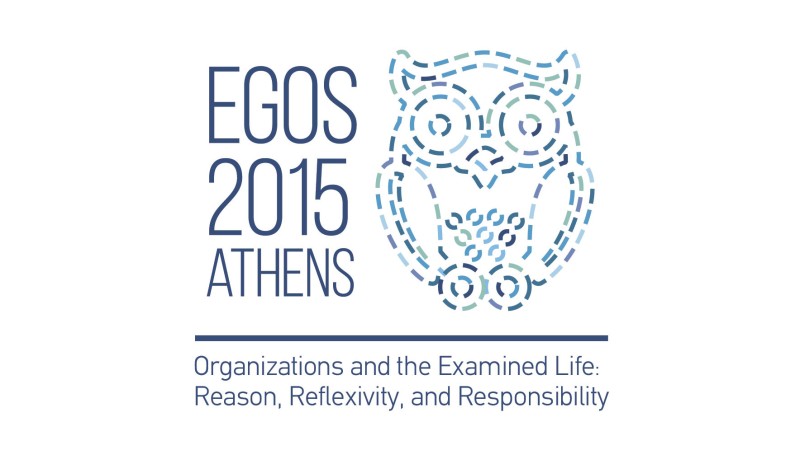Sub-theme 21: Challenging Unreflective Organizational Life: Innovating towards Sustainable Enterprise Models
Call for Papers
Central to the EGOS Colloquium 2015 general theme is Socrates' quote: "an unexamined life is not worth living" which
calls for a continuous open-ended inquiry in (organizational) life. At the same time, the call asks whether and how modern
organizations are able to do so, given their fundamental reliance on – unexamined – routines, systems, norms, and power structures,
particularly when interruptive occasions occur.
The integration of sustainability in corporate behaviour fundamentally
challenges the learning and change capacity of firms. With this sub-theme, we would like to point to some of the key unanswered
questions related to the organizational change and learning challenges that companies face as they innovate towards sustainable
enterprise models. Sustainability is referred to as the firm's ability to identify actions and interventions that will not
weaken people’s future prospects of benefiting from levels of consumption, wealth, utility and welfare comparable to those
enjoyed by in the present (Bromley, 2008). Even if this is some evidence "why" firms should invest in sustainability-driven
change and "what" the sustainable model could look like, we lack conceptual frameworks and empirical evidence on "how" can
evolutionary change for real and how multi-faceted sustainability should be designed and enacted (Zollo et al., 2013).
Organizational change is fundamentally linked to organizational learning (Levitt & March, 1988). Evolutionary
process research has focused primarily on behavioural outcomes (e.g. routines) and innovation processes, neglecting other
fundamental aspects of organizational evolution such as the dynamics of change and learning in competitive and growth strategies,
structure and power, shared values and identity, individual traits (cognitive beliefs, emotional dispositions, motivational
drivers, etc.), and the various dimensions of firm culture, including firm's purpose. Additionally, the study of organizational
evolution has far proceeded under the assumption that fit is based on purely economic performance, without explicit consideration
of the firm’s social and environmental impacts.
While we know a lot about how technology shapes, and is shaped
by, organizations (Brusoni et al., 2001), we know less about how non-technological variables affect organizational design.
Sustainability concerns affect the organizational design of firms: they implement sustainability units, publish reports, organize
public meetings. But does this really affect their choices, strategies and the way they perceive firm’s and managers’ responsibilities?
Are they modifying the way they think about the next generation of products, their future growth paths and how to organize
for that? Is it about changing and remolding their strategy to their (generally very stable) technological core? Is it about
identifying the product, process or organizational innovations to be introduced to relax the financial vs. sustainability
performance trade-offs? Is it about going beyond stakeholder salience management towards co-evolving stakeholder management
approaches that incorporate stakeholder needs and knowledge into long-term decision making? Is it about recognizing that an
integrated set of relational contracts with all stakeholders can move the "performance frontier" upward to benefit all
stakeholders by engaging them collaboratively in the necessary organizational innovation processes?
We still
do not know how sustainability considerations are actually embedded in the everyday decisions, in corporate strategic choices,
organizational design choices and in organizational and individual learning processes to change an organization towards a
more sustainable one. The sub-theme thus invites scholars from different theoretical perspectives to contribute to the questions
raised above and to submit theoretical and empirical papers addressing the evolutionary processes characterizing the integration
of sustainability within the different elements of an enterprise model.
References
- Bromley, D.W. (2008): "The crisis in ocean governance: Conceptual confusion, spurious economics, political indifference." MAST, Maritime Studies, 6 (2), 7–22.
- Brusoni, S., Prencipe, A., & Pavitt, K. (2001): "Knowledge specialisation, organizational coupling and the boundaries of the firm: Why firms know more than they make?" Administrative Science Quarterly, 46 (4), 597–621.
- Levitt, B., & March, J.G. (1988): "Organizational learning." Annual Review of Sociology,14, 319–340.
- Zollo, M., Cennamo, C., & Neumann, K. (2013): "Beyond what and why: understanding organizational evolution towards sustainable enterprise models." Organization & Environment, 26 (3), 241–259.


